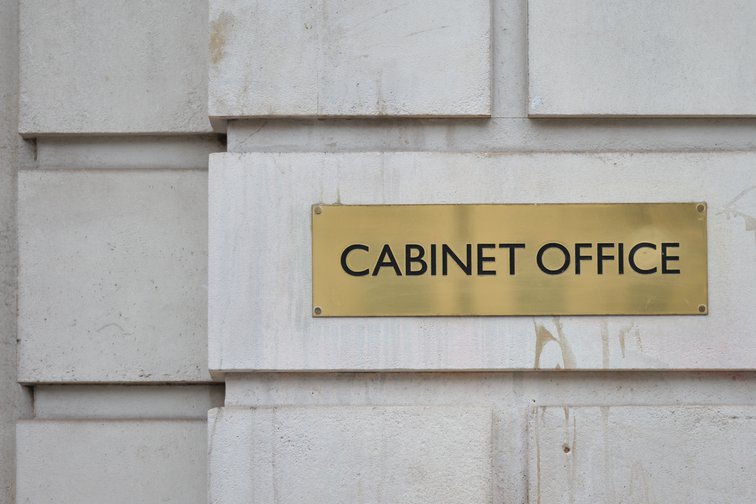
British government slammed by regulator over ‘unacceptable’ FOI failures
Stinging criticism of Gove’s Cabinet Office laid bare in new openDemocracy analysis. Tory MP calls for ‘investigation, without delay’

The British government’s handling of Freedom of Information (FOI) requests has been described as “unacceptable” and “inadequate” by the watchdog charged with its regulation, an openDemocracy analysis can reveal.
An extensive review of hundreds of rulings from the Information Commissioner’s Office (ICO), made over a two-and-a-half year period, offers a scathing assessment of the government’s adherence to the Freedom of Information system, with dozens of highly critical judgements of key departments.
Michael Gove’s Cabinet Office – which is responsible for FOI policy – is a regular offender, with the ICO suggesting it has a “lack of understanding of the basic principles” of the Freedom of Information Act. The department’s reluctance to cooperate with the ICO’s investigations is also underlined by a number of rulings.
Earlier this week, more than a dozen current and former national newspaper editors signed an openDemocracy public letter calling for MPs to urgently investigate the British government's handling of Freedom of Information requests, and the role of a secretive Cabinet Office ‘Clearing House’ that vets ‘sensitive’ requests from journalists and others. Legal experts say the operation is likely in breach of data protection legislation.
In a response posted on Tuesday, the Cabinet Office denied that its approach “undermines the FOI Act or the statutory rights of journalists to inquire into the action of government”. Michael Gove’s department said that it was “fully committed” to transparency.
However Conservative MP Andrew Mitchell today described openDemocracy’s findings on ICO rulings as “extremely concerning”.
“If parliament were functioning properly – which it obviously can’t at the moment – ministers would be feeling the heat for allowing officials to disrespect the system of FOI in this way.
“Whether one approves or disapproves of Freedom of Information, it is the law of the land and this sort of obfuscation is clearly unacceptable. FOI response rates are at an all-time low, and this threatens press freedom. The time has come for parliament – through its relevant committees – to investigate, without delay."
“Unacceptable” delays
The ICO has often stopped short of taking concrete steps to sanction public bodies’ poor FOI practice. It has issued only four enforcement notices since the FOI Act came into force in 2005.
Jon Baines, an information rights expert at the law firm Mishcon de Reya, said that the ICO needed to force government departments to comply with FOI legislation. “The fear has to be that other public authorities will question why they should bother with compliance, when there are no apparent consequences for ignoring the law," he said.
openDemocracy’s analysis of hundreds of ICO decision notices paints a picture of delays, failures to respond to requests and mismanagement of requests for information. Our analysis also found that requesters have to complain to the ICO over basic errors made by government departments.
This sort of obfuscation is clearly unacceptable. FOI response rates are at an all-time low, and this threatens press freedom. The time has come for parliament to investigate, without delay
Public authorities have 20 working days to respond to FOI requests, yet in numerous cases across recent years, requesters have complained that they received either a significantly delayed response from central government departments – or no response at all.
In one ruling the ICO said that the Cabinet Office had acted in an “unacceptable” and “inadequate manner” after it took more than 18 months to respond to a request for information over messages posted to Slack, an online workspace.
Another requester had to wait 391 working days for the Foreign and Commonwealth Office to consider their request for information on Operation Flavius, the military operation that killed three members of the Provisional IRA in Gibraltar in 1988. In a separate ruling, the regulator said that the FCO’s tardiness served “to frustrate a requester’s right of access information”.
In March 2020, the Department of Health and Social Care (DHSC) was asked for information about Exercise Cygnus – a cross-government exercise to test the UK’s response to a serious flu pandemic, which took place in October 2016. The requester complained to the ICO that they had not received a response in six months.
The response to another request about Exercise Cygnus, was seemingly delayed because the DHSC wished to have its reply signed off by the health secretary, Matt Hancock. The commissioner said that there was “no requirement within the FOI Act which required the secretary of state to approve any response personally” and warned of the possibility of a “ministerial ‘pocket veto’ and would frustrate the purpose of the legislation”.
“Fundamental error”
As revealed by openDemocracy last year, the Cabinet Office’s Clearing House unit tried to block the disclosure of sensitive files about the contaminated blood scandal. The department encouraged the Treasury to avoid releasing historic documents about litigation taken by haemophiliacs infected by HIV in the early 1990s.
The information commissioner also criticised the Cabinet Office for failing to respond adequately to a request for information about the on-going infected blood scandal, saying “she would expect the Cabinet Office to set a better example to other authorities”.
The information watchdog is “extremely concerned” by government departments’ inability to respond to internal reviews – the first stage of challenging rejected FOI requests – in a timely manner
In another of dozens of judgements against the Cabinet Office, the ICO found that the department had failed to objectively read the request. Another request – for email correspondence from the former chief adviser to the prime minister, Dominic Cummings, as well as Number 10’s former director of communications, Lee Cain, and other senior Downing Street staff – was wrongly deemed vexatious by the Cabinet Office.
When the Cabinet Office rebuffed a request about a formal review into why people from Black and minority ethnic backgrounds appeared to have been disproportionately affected by COVID-19, the ICO ordered Gove's department to provide advice and assistance to the requester, and “to respond more in the spirit of the Act”.
In another judgement, the commissioner found that the Department for Work and Pensions (DWP) had made “a fundamental error” when responding to an FOI request. Elsewhere, the ICO criticised the DWP for delaying the release of information about the controversial Universal Credit scheme because of the “possibility of negative publicity”.
‘Tortuous process’
The information watchdog is “extremely concerned” by government departments’ inability to respond to internal reviews – the first stage of challenging rejected FOI requests – in a timely manner.
When the government delayed a response to an openDemocracy request to obtain lists circulated by the Clearing House, the ICO said: “There is simply no justifiable reason in the commissioner’s view for the public authority to have taken nearly eight months to carry out the internal review.”
A requester who asked for information about meetings that took place in May and June 2018, between the then culture secretary, Matt Hancock, and Facebook employees described a “tortuous process” in which the “principles of transparency required by the FOI Act have been damaged” by delays. The ICO said that “she would not expect to see such delays and poor handling in future”.
One requester had to wait almost 11 months for the Cabinet Office to provide some of the 14 names of members on an accreditation committee. This was deemed “unacceptable” by the ICO.
After the Cabinet Office refused to release a high-profile report, the commissioner said she was “disappointed at the tone of the correspondence”
In several cases, the Cabinet Office blamed “staffing changes” for its failure to complete internal reviews on time. In one such case, the “Commissioner acknowledged that this may have been the reason but finds it is a wholly unsatisfactory excuse given the age of the legislation and the Cabinet Office’s experience of handling FOIA requests.”
The commissioner raised concerns about other government departments, too. In one ruling, the ICO found that: “The Commissioner has previously commented on the DHSC’s inability to complete reviews in a timely fashion and the situation has not improved.” In another case, the commissioner criticised the health department’s “poor practice” when handling an internal review. The Ministry of Defence took 15 months to complete one internal review.
“Disappointed and concerned”
In multiple instances, the ICO expressed concern over the quality of government departments’ submissions to the regulator as it conducted investigations.
In one ruling over information about ministerial misconduct complaints, the commissioner was “disappointed and concerned at the quality” of the Cabinet Office’s response, adding that “it should be aware of the procedural basics of the Act”.
After the Cabinet Office deemed a request for information about how it responds to FOI requests “vexatious”, the ICO found that the department was “speculating and has not provided evidence for its views”.
When the Cabinet Office said that it could not disclose minutes of a committee meeting on devolution because it could lead to ministers not recording future discussions, the commissioner said there was “no evidence” to support the department’s “generic statement”.
After the Cabinet Office refused to release the high-profile Intelligence and Security Committee’s 2019 report, the commissioner said she was “disappointed at the tone of the correspondence received from the Cabinet Office” and that she “does not expect to have her request for submissions dismissed by a public authority.” The decision added: “she is concerned that the Cabinet Office appears ignorant of its obligations to justify its handling of a request for information”.
In numerous instances, the ICO had to serve Information Notices to compel them to respond to its inquiries during investigations. In 2019 and 2020, the ICO served 12 INs on the Cabinet Office.
The Cabinet Office has accepted the ICO’s judgments, but has said that it has put in place new procedures and additional resources to improve its FOI record.
Responding to openDemocracy’s request for comment, a government spokesperson said: "The government is committed to its transparency agenda, routinely disclosing information beyond its obligations under the FOI Act, and releasing more proactive publications than ever before.
“With increasing transparency, we receive more complex Freedom of Information requests and we must balance the public need to make information available with our duty to protect sensitive information and national security.”
Read more
Get our weekly email




Comments
We encourage anyone to comment, please consult the oD commenting guidelines if you have any questions.